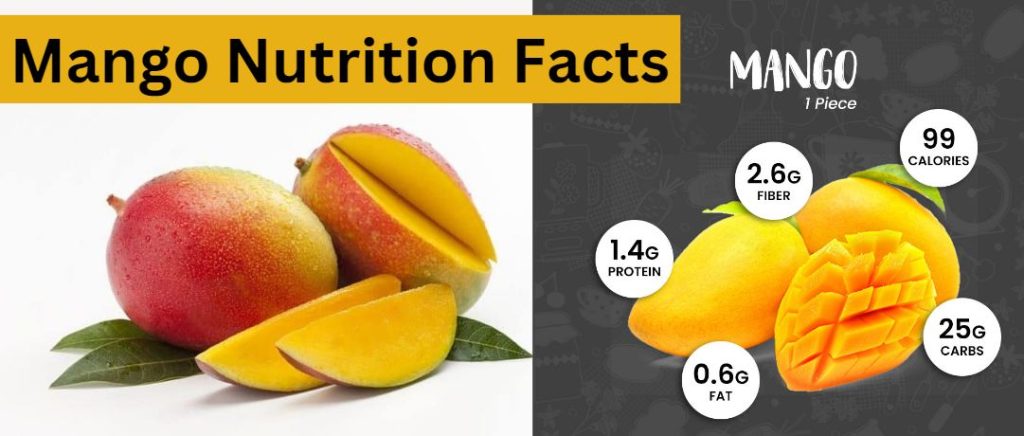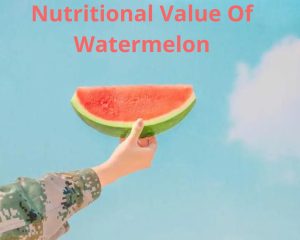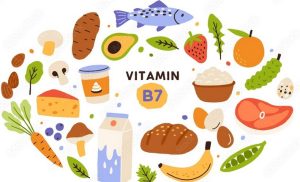
Welcome to the captivating world of mango nutrition facts, those alluring tropical fruits that entice our senses with their luscious appearance, aromatic fragrance, and delightful sweetness. As you sink your teeth into their succulent flesh, you are not only indulging in a delightful culinary experience but also unlocking a treasure trove of health-boosting nutrients that Mother Nature has bestowed upon these golden gems. Bursting with a vibrant spectrum of vitamins, minerals, and antioxidants, mangoes can rightfully claim the title of a nutritional powerhouse, making them an essential addition to any well-balanced and health-conscious diet.
In this enlightening article, we embark on a journey to uncover the secrets of mango nutrition facts, revealing the myriad of benefits that these delectable fruits have to offer. From being an excellent source of Vitamin C, promoting a robust immune system, to their significant contribution of Vitamin A, essential for maintaining healthy vision and skin, mangoes prove to be a cornucopia of vital nutrients. Not stopping there, these tropical delights boast an array of minerals, including potassium, magnesium, and calcium, which are crucial for supporting heart health, regulating blood pressure, and maintaining strong bones. Moreover, mangoes are rich in antioxidants, such as beta-carotene and polyphenols, that play a pivotal role in combating oxidative stress and reducing the risk of chronic diseases. So, as we delve deeper into the fascinating world of mango nutrition facts, brace yourself to be amazed by the multifaceted benefits that this delectable fruit brings to the table, compelling you to embrace it as an integral part of your daily dietary repertoire for a healthier and more vibrant life.
Mango Nutrition Facts:
A Rich Source of Vitamins
Delving deeper into the realm of mango nutrition facts, these tropical wonders do not cease to amaze with their remarkable vitamin content. Among the myriad of vitamins they hold, two stand out prominently: vitamin C and vitamin A. The lush, golden flesh of mangoes is a veritable treasure trove of vitamin C, boasting a remarkable ability to provide a full dose of this essential nutrient in just a single cup of diced fruit. Meeting a whopping 100% of the recommended daily intake of vitamin C, mangoes bolster the immune system, fortifying our body’s defense against infections and illnesses. Moreover, vitamin C is a potent antioxidant that plays a pivotal role in neutralizing harmful free radicals, thereby reducing oxidative stress and contributing to cellular health. But the wonders of mangoes don’t end there! The abundance of vitamin A in these tropical delights brings forth an array of health benefits, supporting optimal vision, aiding in the proper functioning of the immune system, and ensuring the maintenance of healthy skin and mucous membranes.
Antioxidant Powerhouse
Mangoes are renowned for their high antioxidant content, which helps protect the body against harmful free radicals. These antioxidants, including compounds like beta-carotene and various phenolic compounds, play a crucial role in reducing oxidative stress and inflammation in the body. By neutralizing free radicals, mangoes can potentially reduce the risk of chronic diseases such as heart disease, certain cancers, and age-related macular degeneration.
Fiber for Digestive Health
Including mangoes in your diet can provide a good amount of dietary fiber. A cup of diced mango contains approximately 2.6 grams of fiber, which contributes to a healthy digestive system. Fiber helps regulate bowel movements, prevents constipation, and promotes a feeling of fullness, aiding in weight management. Moreover, the natural sugars in mangoes are balanced by the fiber content, resulting in a slower release of energy and preventing blood sugar spikes.
Minerals for Vitality
The best Mango Nutrition Facts are that Mangoes also provide essential minerals that support various bodily functions. Potassium, for instance, is crucial for maintaining healthy blood pressure levels and proper heart function. A cup of mango supplies approximately 8% of the daily recommended intake of potassium. Additionally, mangoes contain small amounts of copper, which aids in the formation of red blood cells and supports the immune system, and magnesium, which plays a role in maintaining normal nerve and muscle function.
Choosing and Enjoying Mangoes
Ah, the art of choosing and savoring mangoes, an endeavor that elevates the experience of relishing their unparalleled nutritional benefits to new heights. As you embark on your quest for the perfect mango, an understanding of the ripeness indicators will prove invaluable. A ripe mango is a culinary treasure waiting to be uncovered, and to find it, gently apply a tender squeeze to the fruit. A mature mango will yield slightly under the pressure, yielding a tantalizing hint of its succulent texture and juiciness. Another telltale sign of ripeness is the delightful fragrance that wafts from the stem end, tantalizing your olfactory senses with its sweet and fruity aroma. Armed with this knowledge, you can confidently select the most alluring mangoes, ensuring an exquisite gastronomic experience and maximizing the intake of essential nutrients.
Once you have procured your bounty of ripe mangoes, a world of delectable possibilities awaits. Eating a ripe mango in its pure, unadulterated form is an unparalleled pleasure that showcases the fruit’s inherent sweetness and velvety texture. The mere act of peeling back the skin to reveal the golden flesh within is akin to unveiling nature’s masterpiece. To add a touch of creativity to your culinary endeavors, consider incorporating ripe mangoes into smoothies, infusing your beverages with tropical flavors that will transport your taste buds to an exotic paradise. Alternatively, diced mangoes make a delightful addition to fresh and vibrant salads, introducing a burst of color and sweetness to balance out other savory ingredients. For the adventurous food enthusiasts, mangoes can even lend their unique charm to salsas, where their tantalizing taste and juiciness complement the zesty ingredients, creating a harmonious dance of flavors.

But the culinary journey does not end there; the versatility of mangoes extends to the realm of baking as well. Harnessing the fruit’s natural sweetness, you can incorporate diced or pureed mangoes into various baked goods, from cakes to muffins, infusing them with an irresistible tropical essence. This not only elevates the flavor profile but also provides a healthier alternative to refined sugars, making your treats both nutritious and indulgent. The possibilities are limited only by your imagination, as mangoes lend their magic to a plethora of recipes, allowing you to create culinary masterpieces that are as wholesome as they are delicious.
In the spirit of cherishing every aspect of mango nutrition facts, embracing the art of selecting and enjoying mangoes becomes an integral part of the experience. Whether relishing them in their raw, unadulterated form, blending them into vibrant smoothies, tossing them into colorful salads, concocting zesty salsas, or infusing them into your favorite baked goods, mangoes promise a symphony of flavors and textures that will leave a lasting impression on your palate. So, as you embark on your gastronomic journey with mangoes, revel in the joy of discovering their ripe perfection and savor the blissful harmony of nature’s bounty at your fingertips. The allure of mangoes knows no bounds, and with each juicy bite, you partake in a celebration of health, flavor, and sheer culinary splendor.
Mango Nutriton Facts In Numbers
- Calories: 202.
- Proteins: 3 grams.
- Fat: 1 gram.
- Carbohydrates: 50 grams.
- Fiber: 5 grams.
- Sugar: 45 grams.
Conclusion
Mangoes are not only a delicious tropical treat but also a nutrient-packed fruit that offers an array of health benefits. From providing a burst of vitamins and antioxidants to supporting digestive health and offering essential minerals, mangoes are a valuable addition to a balanced diet. So, go ahead and savor the flavor and goodness of mangoes, knowing that you are nourishing your body with nature’s sweet gift.
This Article is about :
- Is it OK to eat a mango a day?
- Is mango more healthy than Apple?
- Is mango too high in sugar?
- Is mango better than banana?
- What are the best mango nutrition facts?




